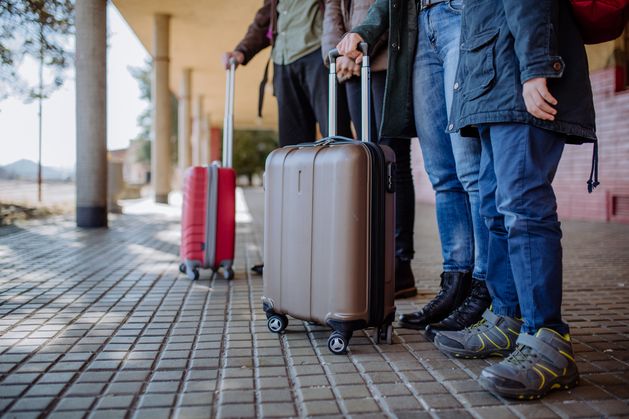An annual report on asylum and migration in Ireland, published by the European Migration Network (EMN) yesterday, said 130 Syrians were resettled in Ireland in 2023 under international obligations. This represented a 64pc drop from 2022, and was the lowest number since 2014.
The same report also found that the number of non-EU migrants stopped at Ireland’s borders dropped by a fifth in 2023, while the State struggled to manage high numbers of international protection applications and appeals, and a dearth of accommodation that led to around 2,000 asylum-seekers being left with no accommodation on arrival.
The EMN said the report showed both challenges and progress in terms of how Ireland manages migration.
The report found that the Government blamed issues with its immigration system for its failure to meet resettlement targets in 2023.
All 130 of the people resettled in Ireland in 2023 were Syrian, and almost half of them were under the age of 18.
The EMN report said that according to the Department of Children, Equality, Disability, Integration and Youth, “challenges such as a lack of reception capacity, housing shortages and an increase in the number of international protection applications, as well as the hosting of arrivals from Ukraine, affected the ability to reach resettlement targets in 2023”.
The report also said the number of non-EU nationals stopped at the Irish border in 2023 was 7,405, which represented a 20pc reduction when compared with 2022.
The State has struggled to accommodate asylum-seekers. Photo: Sasko Lazarov
The report added that this was almost the same as the 2019 figure, “prior to the drop due to the Covid-19 pandemic and subsequent travel restrictions”.
It also said that an increase in international protection applications in both 2022 and 2023 “created significant pressure in the international protection system”.
As a result, 2,000 people who arrived in Ireland to claim asylum in 2023 were initially offered no accommodation.
This led to significant criticism and even legal challenges against the State. All of those affected were single men. At the end of the year, 376 people had still not been offered any accommodation.
The State’s ability to process applications was also challenged, even though processing times continued to reduce.
By the end of 2023, 21,850 applications were pending at the International Protection Office (IPO), a 47pc increase on the same time in 2022.
The report said this was despite a “90pc increase in decisions made by the IPO”.
The number of people who appealed an International Protection Accommodation Services (Ipas) decision in 2023 tripled, and the report said that, despite better processing times, “the scale of the increase in appeals taken meant that there were 359pc more applications on hand at the end of 2023 than in 2022”.
Ireland’s lack of accommodation for international protection applicants was exacerbated by the housing crisis, which created difficulties for people trying to leave the system after being granted leave to remain.
This contributed to the State having 26,279 people living in the Ipas system at the end of 2023 – an increase of 42pc on December 2022.
Figures on the numbers of people coming here as international protection applicants do not include those who came to Ireland from Ukraine as Beneficiaries of Temporary Protection (BOTP).
The report revealed that 103,458 PPS numbers had been issued to people who came to Ireland from Ukraine between February 2022 and December 2023.
Of those, 33,841 PPS numbers were allocated in 2023.
As was the case in 2022, there is a higher concentration of Ukrainians in Dublin and the west coast of the country. In Tipperary, Sligo and Offaly, the number more than doubled in 2023.
In Ireland, more than 16,000 Ukrainians have been accommodated through rooms or homes pledged by the public.
Ireland has a higher proportion of Ukrainians living in homes offered by the public than most of Europe.
The report stated: “As of June 2023, 25pc of arrivals from Ukraine living in Ireland were living in host accommodation and pledged properties, compared to 8-9pc across the EU.”
While there are almost 10,000 Ukrainian people living in the Red Cross-pledged accommodation scheme, and another 6,385 living in a similar accommodation scheme run by local authorities, figures for the amount claimed under the Accommodation Recognition Payment scheme suggests that Irish and Ukrainian people are setting up private arrangements between themselves to share homes.

